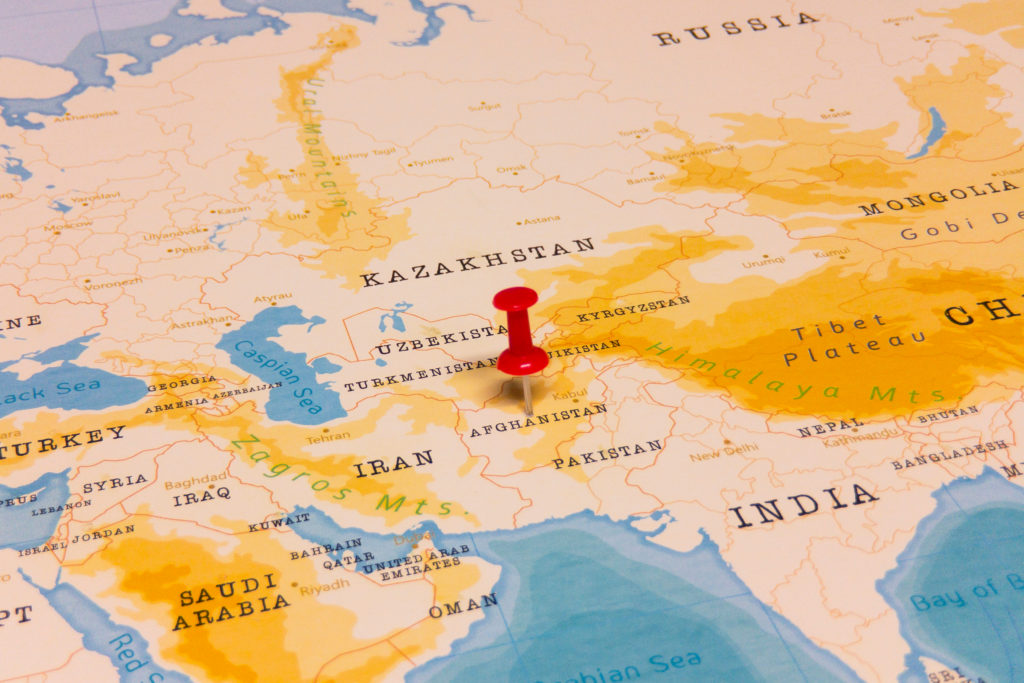Australia/Israel Review
Afghan Aftermath
Sep 15, 2021 | Yaakov Amidror

Israel’s Changing Strategic Situation
Recently, I spoke with a respected American journalist who asked about the impact on Israel of the US withdrawal and fall of Afghanistan to the Taliban. He is not the first person to ask about this, even though Afghanistan is very far from Israel and never was an enemy of Israel on the battlefield. Some expand the question and tie the hurried withdrawal from Afghanistan with the decision to stop fighting in Iraq and leave behind only US troops that will train the Iraqi army.
The first to define the expected process was President Barack Obama, who talked about a pivot to the East, in other words shifting US efforts from the Middle East eastward, alluding to China. President Donald Trump followed suit and decided to withdraw all American forces from Syria and Iraq (although this was not fully acted upon). President Joe Biden continued this process and brought it to a difficult end in Afghanistan, taking another step towards a complete withdrawal from Iraq. In other words, this move is not a personal idiosyncrasy but rather an inevitable historical process reflecting deep-rooted American sentiment.
The question is how the US decision to reduce US military involvement in the Middle East, and the Taliban’s rapid takeover of Afghanistan, will impact the international and regional order within which Israel operates.
From a global perspective, US nation-building in a country that America took responsibility for in 2001 is a resounding failure, especially considering the lightning speed of collapse of the military and political system in Afghanistan which the US attempted to build.
Will this failure impact America’s international standing, primarily the race between the US and China? Most likely, it will impact US standing very little. US competition with China is not related to any one event. China is driven by its belief and wide-ranging assessment over time of America’s decline; that the democratic system has run its course and China has emerged on the world stage to change the world, not to integrate into it, certainly not according to the rules set by the West.
It is not at all certain that China is interested in Afghanistan becoming a terror state – but the situation in Afghanistan is not a major event that will dictate China’s actions.
Europe will also not change its cautious position regarding the struggle between China and the US because of America’s success or failure in Afghanistan or Iraq. Europe will continue to speak grandiosely about protecting human rights in China and simultaneously expand its trade with China. The Europeans certainly would be happy if the US succeeds in isolating the Taliban, and they even were willing to provide some help during the various stages of the war against the Taliban and al-Qaeda – but most Europeans believe that trade is preferable to war, and when the largest trade partner is China, you cannot really fight against it.
The real lesson the world learns from the US failure has to do with the entire Middle East. The failure shows the world that history cannot be replicated, and that what succeeded after World War II in Germany and Japan does not necessarily work in the Middle East. The US failed in changing the local culture in Iraq, and certainly in Afghanistan.
It should therefore be quite clear that the Middle East, between the Atlantic Ocean and India’s borders, will not change dramatically anytime soon, just as it did not following the Oslo agreements nor following the mislabelled “Arab Spring”. This region is doomed to remain difficult, brutal, violent, repressive, and culturally Islamist.
At the same time, we must take into consideration that after the US partially or completely leaves, there will not be a void. There is no vacuum in the real world, and the obstacle to the involvement of other powers which the US posed by its very presence will have been removed. This will enable China and Russia to expand their influence in the area. They will take part in rebuilding Syria as well as in the rebuilding of Iraq and Lebanon, and probably Afghanistan too (mainly by China), and they will expand their influence by building military bases in the region and selling arms.
China and Russia will be glad to stake their presence and expand their influence, even symbolically, any place from which the US withdraws – if for no other reason than to signal a change in their favour. Their more prominent presence in the region likely will bring about a change in behaviour of Mideast countries, since it will not be possible to ignore Russian and Chinese interests. The world looks different when there is a Chinese or Russian military base, instead of an American base, nearby.
As for the Middle East itself, countries in the region must recognise that the political and security conditions around them are changing, and that the US umbrella is growing weaker.
For Iran and Turkey, two countries with imperial pasts that dream of restoring their former glory and expanding their influence, this is an opportunity that they will not miss, and therefore they likely will become more aggressive.
For the countries seeking to maintain the status quo and which are concerned about the Shi’ite axis of evil, as well as a re-emergence of the Ottoman Empire driven by a Muslim Brotherhood-like ideology – now is the time to act collectively to protect themselves.
These countries are Arab countries, some rich, some heavily populated, and some with serious economic and social problems. They are dictatorships at some level or another, exerting harsh control over their population and suppressing the opposition. At the same time, they are threatened by extreme Islamic organisations, both internally and externally. Each of them separately will find it very difficult to contend with Turkish or Iranian pressure as well as with the lurking danger of internal enemies from within.
However, if they act together, in mutual assistance regarding economic, intelligence and military matters, they will be able to contend with the two non-Arab countries that seek to control the Arab world. Each of these countries will be left with difficult internal challenges, but they will also be able to deal with these more easily if the external threat is mitigated.
It is entirely unclear whether the Arab world is ready for such a change. Perhaps the old rivalries between and within these countries will not enable them to cooperate. If this proves to be the case, Iran and Turkey will have an easier time in threatening countries across the Middle East. At the same time, radical Islamist movements will be encouraged by the Taliban’s success and will increase their efforts in these Arab states.
From the Israeli perspective, the weakening of US commitment to, and involvement in, the Mideast poses a problem mainly because Israel will be left bearing the burden of contending with the countries threatening Israel and the entire region.
At the same time, this also presents Israel with a genuine opportunity. After all, Israel is less impacted by US withdrawals than these Arab countries. Israel never built its defence capability on active American partnership, certainly not on the battlefield. Israel has expected the US to provide only the means for Israel’s victory – through assistance to purchase US arms, through diplomatic support that enables Israel to use force until achieving victory on the battlefield, and through deterrence of forces that harm or threaten Israel. In these areas, the US has not backed away from its commitment to Israel, and therefore the conditions for conducting future warfare have not fundamentally changed from Israel’s perspective.
Nevertheless, it is true that Israel is now more alone in bearing the day-to-day burden of dealing with aggressive forces in the region, both to prevent and win wars. Israel will have to address this additional burden in its military force build-up.
Israel should try to convince the US to assist in this additional effort. But under no circumstances should Israel call on the US to return its soldiers to the region. It is not Israel’s business how the US sets its priorities and where it is willing (or unwilling) to sacrifice the lives of its men and women.
Israel must repeatedly emphasise that it will defend itself by itself. Israel is willing to pay for this capability and will be happy to receive US assistance in easing the burden of realising it.
Israel’s regional standing may in fact grow stronger in two areas. Perhaps Mideast countries will come to understand that an open relationship with Israel is vitally important for their ability to defend themselves. In contrast to Iran and Turkey, Israel does not have any pretensions or aspirations to control or influence Arab countries, besides its desire to prevent them from threatening it. Thus, Arab countries can gain significantly from open relations with Israel because Israel can provide knowledge and technology in areas that are important to these countries such as water, agriculture, education, and health. Israel can help them defend themselves by way of intelligence cooperation, as well as overt and covert security assistance.
Israel is not a substitute for the US, but together with Israel these countries will be able to build a regional scheme that will make it easier for them to contend with various threats. If it responds correctly to the US decision, the Arab world can mature and learn to deal with its problems on its own – together with Israel.
From the US perspective, the importance of Israel for securing American interests in the region (and necessarily also of Israel’s standing as a component of US national security) will increase. If the US assesses the situation correctly and does not let clamour from the anti-Israeli ideological flank on the far-left margins of the Democratic Party impair its rational and professional thinking, it will understand that Israel is the only country in the region on which the US can count.
The decision of recent American presidents to cut back on investments in the Middle East (mainly to direct energy and budgets to the Far East) is undoubtedly of historical significance for the entire Middle East. The US shift does not ensure US success in the race against China, but it certainly undercuts the feeling of countries in the Mideast region that there is someone to rely on in case of a crisis, particularly with respect to Iran and Turkey and with regard to the fight against global terror.
Nevertheless, if they act together, Arab countries should be able to defend themselves against Iranian and Turkish aggression. Adding Israel to this undertaking will make it much easier to contend with the regional powers that are not Arab but that aspire to rule the Arab world.
Major General (res.) Yaakov Amidror is the Anne and Greg Rosshandler Senior Fellow at the Jerusalem Institute for Strategy and Security (JISS). Previously, Gen. Amidror was National Security Advisor to PM Netanyahu and chairman of Israel’s National Security Council. He served for 36 years in senior posts in the IDF. © JISS (www.jiss.org.il), reprinted by permission, all rights reserved.
Tags: Afghanistan/ Pakistan, China, Israel, Middle East






